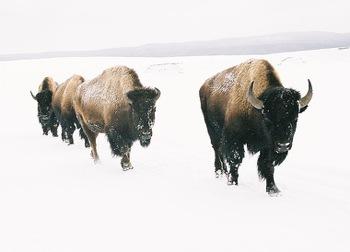In the wake of the uproar over hunting brown bears in Katmai National Preserve, does anyone care that Cape Cod National Seashore officials have cleared the way for pheasant or turkey hunts to resume on the seashore? Or is it only hunts involving charismatic mega-fauna that draw ire?
Now that the Cape Cod officials have decided to allow the state of Massachusetts to stock pheasants on the seashore for as many as 17 years, to allow pheasant hunts for an indefinite period, and to allow spring turkey hunts, will the National Parks Conservation Association help distribute a video of such a hunt as it did in the case of the Katmai bear hunts?
Of course, comparing brown bear hunts with pheasant and turkey hunts is akin to pairing apples and oranges. Pheasants multiply much more quickly than bears, particularly when you have a state agency helping the birds, and so the hunts aren't expected to harm the overall health of the East Coast's pheasant populations.
Of course, wildlife officials with both Katmai and the state of Alaska point out that the Katmai Preserve's brown bear population is quite healthy and that the hunts there won't place the population in danger. But then, the focal point of the protests over the Katmai bear hunt is not hunting in and of itself nor the health of the bear population, but rather the lack of "fair chase" involved.
And yet, some might argue that bird hunts aren't that much more challenging. So will we hear outrage over Cape Cod's decision in the near future?
Doubtful.
But we will soon hear outrage over Montana's decision to issue licenses for a hunt of bison that leave Yellowstone National Park this coming winter. Some will argue that these hunts lack fair chase (they do), and some might say they will jeopardize the health of Yellowstone's bison herds (they won't).
Like it or not, the National Park Service has an image problem when it comes to wildlife stewardship and its mission to "...to promote and regulate the use of the...national parks...which purpose is to conserve the scenery and the natural and historic objects and the wild life therein and to provide for the enjoyment of the same in such manner and by such means as will leave them unimpaired for the enjoyment of future generations."
Some will say that hunting -- fair chase considered or not -- is indeed an appropriate tool to use in managing wildlife populations for today and tomorrow. Others will say wildlife that roam inside parks should be protected from hunters and managed naturally, ie, with a sound balance of prey and predators.
In the case of Cape Cod National Seashore and its bird hunts, the U.S. Sportsmen's Alliance welcomed the decision, saying hunting has been a Cape Cod tradition for roughly a century.
“Since the anti-hunters filed suit five years ago to stop the hunt, the U.S. Sportsmen’s Alliance Foundation and sportsmen have encouraged the Park Service to do what it must to maintain Cape Cod’s hunting heritage, which has existed there since the early 1900s,” said Bud Pidgeon, USSA president & CEO. “The Foundation applauds the decision to maintain and augment hunting opportunities. It demonstrates that the sport is not a detriment to the Seashore.”
"Not a detriment."
Should that be the measure when hunting across the national park system is considered? After all, there are enough animals in Yellowstone's elk and bison herds to allow limited hunts, so should such hunts be allowed within the park? After all, historically, hunting did occur inside Yellowstone.
And certainly the officials at Rocky Mountain National Park, Theodore Roosevelt National Park and even Wind Cave National Park will attest to burgeoning elk herds that could withstand a measure of hunting pressure.
In fact, you could quickly come up with a list of national parks that have healthy populations of various wildlife species that could support hunting. Some hunts would involve fair chase, some would not.
So, if you were the director of the National Park Service, how would you address this sensitive topic? Should hunting be allowed across the park system, should it be permitted on a park-by-park basis, or should it be outlawed?




Comments
I Agree with "Dr. Thomas Kovach". It's so absurd!